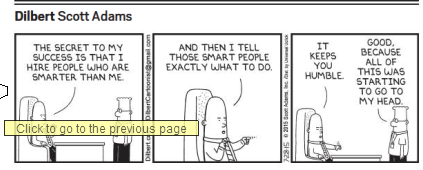
In executive coaching sessions around talent management advice will routinely be provided to clients to hire people that are smarter than they are.
There are pages of Google search results (1,460,000 search results when I looked) supporting this observation but what do you need to do to really make this work?
Here are four tips to the challenges you can face when you hire people that are smarter than you.
Smart is smart but culture is vital
Intelligence and technical expertise can be important additions to any team. The key is to hire people who will match up to your culture. There are many stories of rock star hirings that ended badly because of bad culture fit. In fact, there are published reports that one toxic hire can negate two strong performers (Harvard Business Review, 2015). This happens because there is the mistaken belief what the really talented new hire (marketing guru, tech wizard) brings to the table in skills will be enough of a game changer that you can overlook the fact that they are not good collaborators or that their values do not align with the team.
It is also important that along with IQ there is EQ. In a previous blog I wrote “Why EQ Makes Strong IT Leaders” I commented on the importance of EQ for IT leaders, people typically assumed to only need technical expertise to succeed. In the blog Adele Lynn, an EQ thought leader, correctly points out that all fields, even technical ones, require the ability to develop and nurture relationships.
Professionalism and respect must always be evident
When you bring smart people in your organization you need to be sure that they are respectful and patient with others. Nothing can derail team chemistry quicker that the “know it all” or someone who is openly dismissive of others.

You do not always have to agree but be prepared to defend your position
As a manager of very smart people you always want to secure their opinions so that you can arrive at better decisions. This however does not mean that you have to agree or follow everything that they say. There can be a lot of pressure on a manager to follow the “expert” advice but there are times when your best judgment tells you to do otherwise.
Be prepared to defend your position. Your rebuttal should ideally be fact based versus “it does not feel right”. This is where experience and working history helps because it can provide a unique set of insights.
Be prepared to fully use their talents
Another big problem with hiring smart people is under-utilizing them. They are brought in to address a wide range of strategic challenges and are consequently left managing tactical issues. This leads to discontent and early turnover. To avoid this opportunity cost you need to be fully prepared to have them actively engaged with assignments that are an equal match for their abilities.
Hiring people smarter than you is sold advice but remember to address these four talent management challenges on how to effectively onboard and integrate them.
![]()



